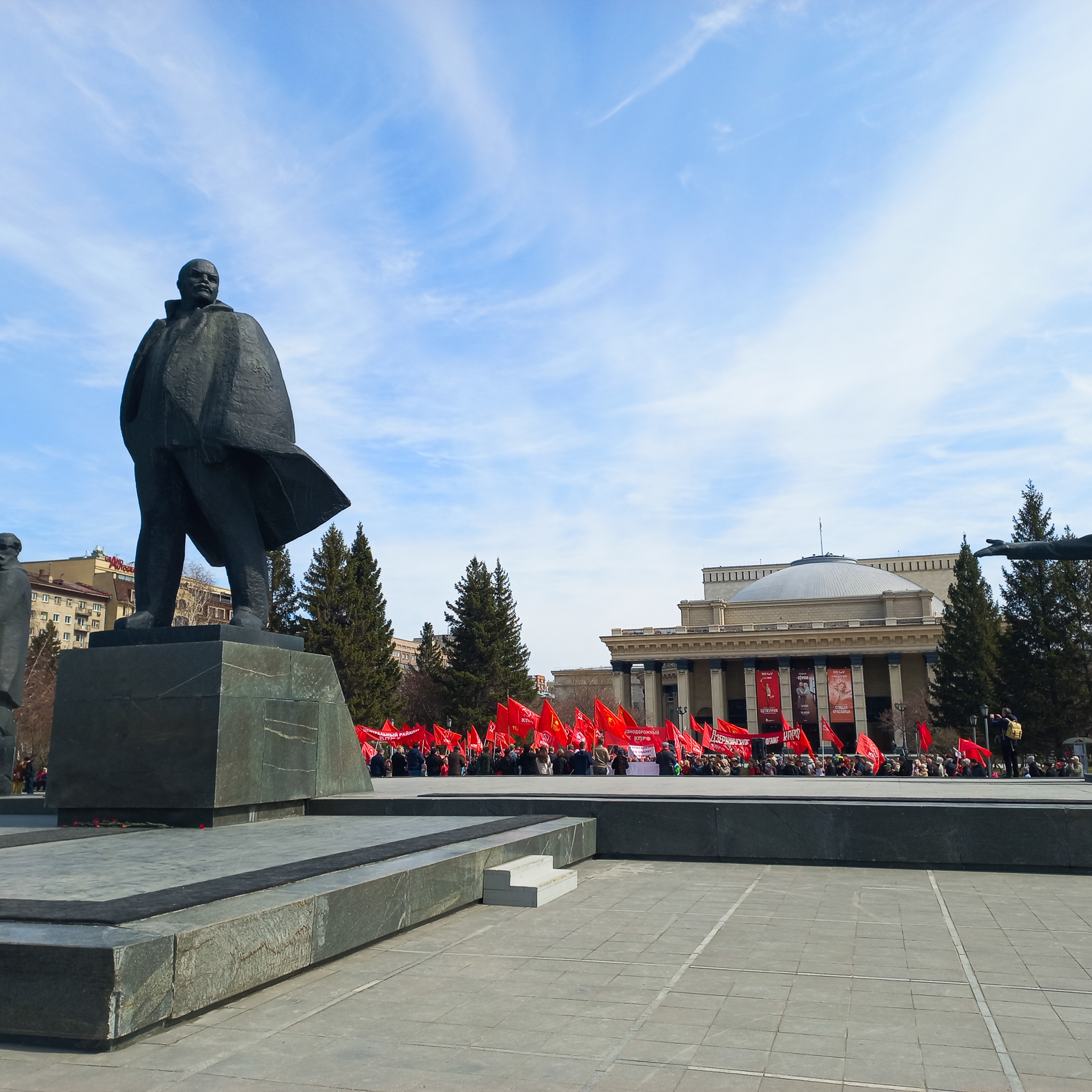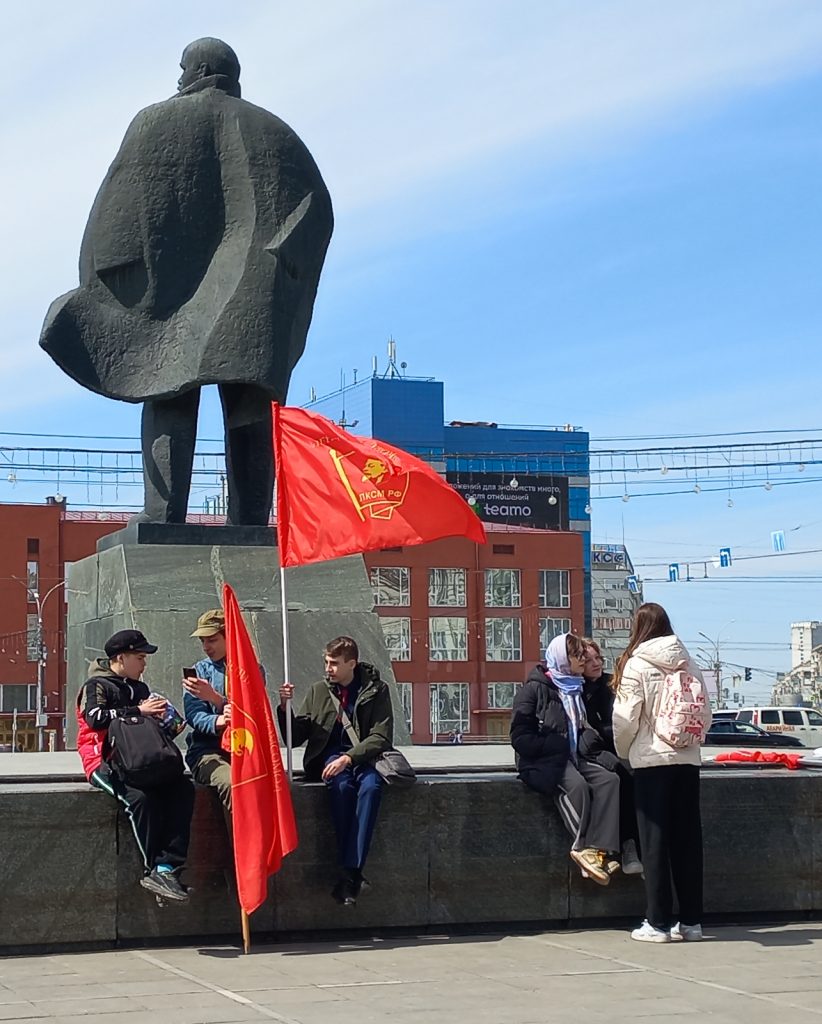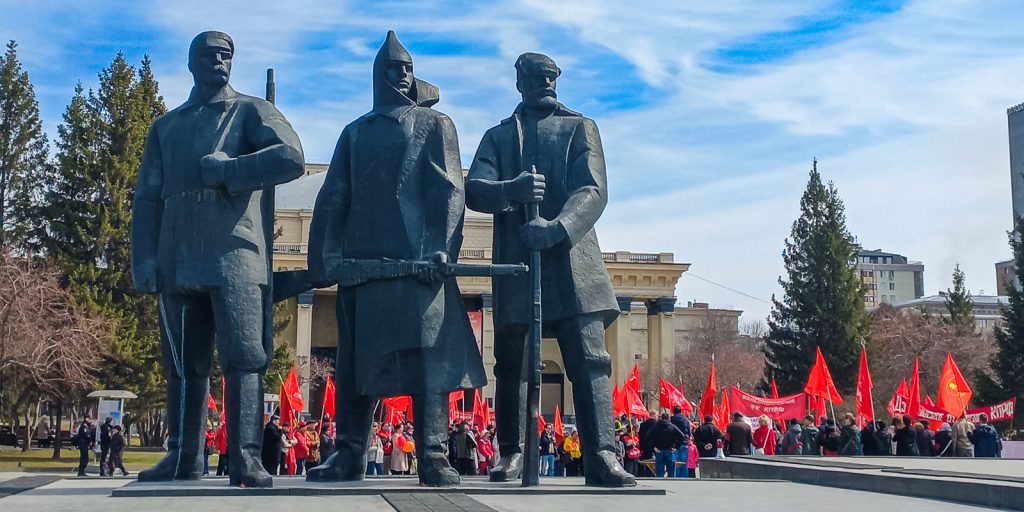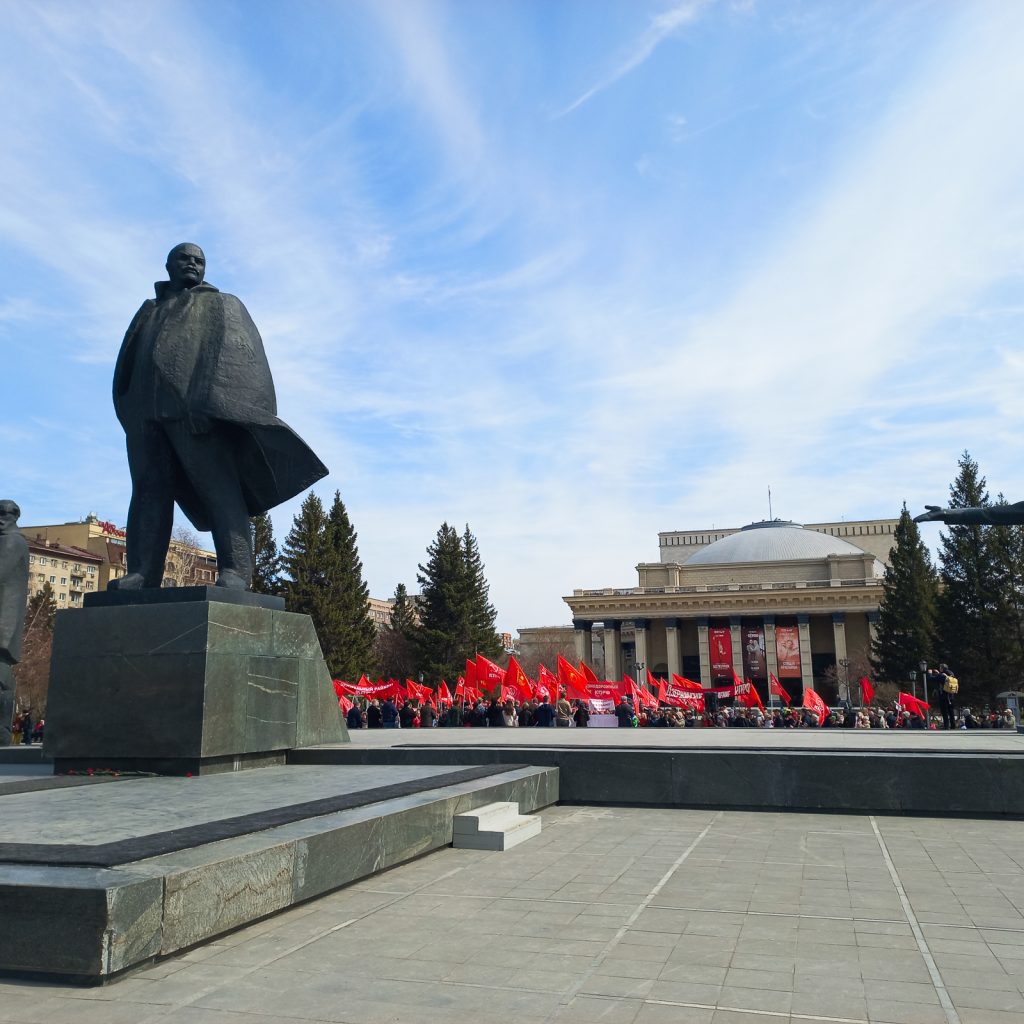Novosibirsk May 1 2024. Labour Day.
This was a meeting of the Communist Party of the Russian Federation in the Siberian City of Novosibirsk. I stumbled upon it by accident. There were about a dozen speakers on a ‘platform’, in fact the steps of the monument. The audience who were members of the party (I assume) and simply local passers-by at the fringes, numbered about 100-150.
I listened to some of the speeches. A woman delegate gave a speech in which she outlined the policies of the Communist Party as they relate to women. She was calling for free medical care and better pensions. (Basic medical care in Russia is free though prescriptions are not covered and expensive medical treatments may not be available. Some Russians prefer to use private clinics rather than state clinics). A male delegate spoke at length about the war in Ukraine. He was supportive of the war but he was at pains to frame it as a confrontation between Western capitalism and imperialism and socialism. He also mentioned Donbas. That is, he supports it on the basis that it is part of a wider struggle of socialism against the capitalist West. So; a very different framing from the one put on it by President Putin. Putin presents it as a question of Russia’s strategic security, as a question of brotherly support for the people of Donbas, and, more recently, in nationalist terms which sound like he is motivated to reclaim “historical Russian lands”. This speaker then mentioned “corruption”. Unfortunately, I lost the thread at that point (my Russian is pretty limited). I think we can assume though that he was not endorsing corruption. – The website of the Communist Party talks about supressing corruption, stopping artificial bankruptcies and blocking corporate raiding. On both these points we can see clear divergence from the policies of Putin and United Russia. While Navalny’s operation was active there was some degree of limited cooperation between Navalny’s team and the Communists around elections.
The Communist Party has a very different vision of how Russia should be than Putin and United Russia. They have clear policies which reflect this different vision. The speakers at this open political meeting were expressing these challenging and divergent views. There were quite a few police officers in attendance; perhaps around 8. They stayed close to the permanent hut – which is on this main square anywhere, and were not aggressively policing it.
At the end of the meeting there was a vote. (Again; I missed what the vote was about, partly because I was photographing). People raised their hands and the motion was carried.
This is the opposition in Russia. Unlike Navalny, they have a real political vision which embodies a completely different direction for Russia. Navalny’s political and economic vision was, in fact, much closer to that of Putin and United Russia; it envisaged keeping the existing set up with some relatively minor modifications – for example, more privatisation, an anti-corruption commission, more power to the regions. (Navalny also wanted to restrict labour immigration from former Soviet states). To some extent, I think, Navalny’s movement embodied the wishes of a certain section of a business middle-class who feel excluded from large government contracts – a sort of party of SME owners. He sought to capitalise on any discontent with the existing system in order to attract votes. The Communist Party is probably more dangerous for Putin than Navalny was. It has a broader and more in-depth alternative and positive vision, which could appeal to the masses.
It would be interesting to look at how the Communist Party votes in the State Duma, and also if they control any local government bodies. I will try and follow up with this when I have time.



